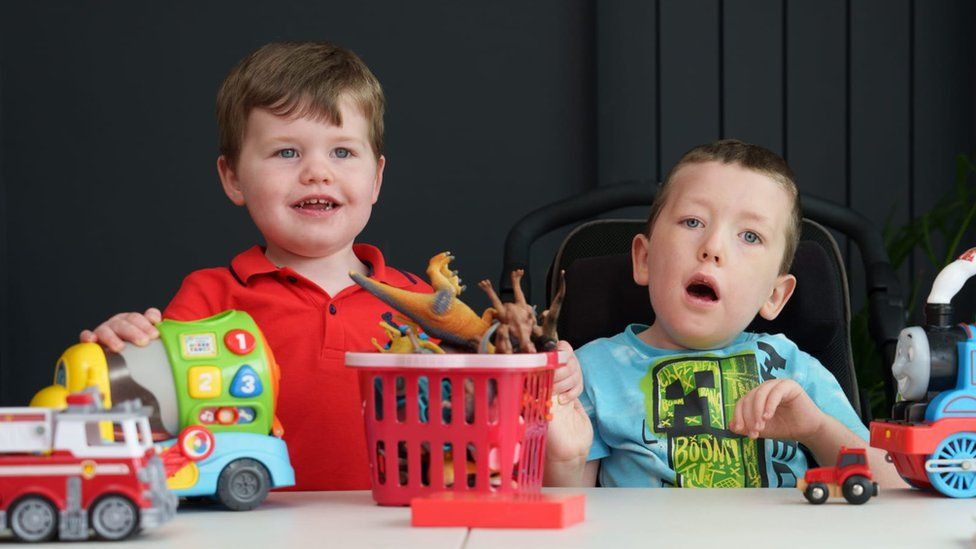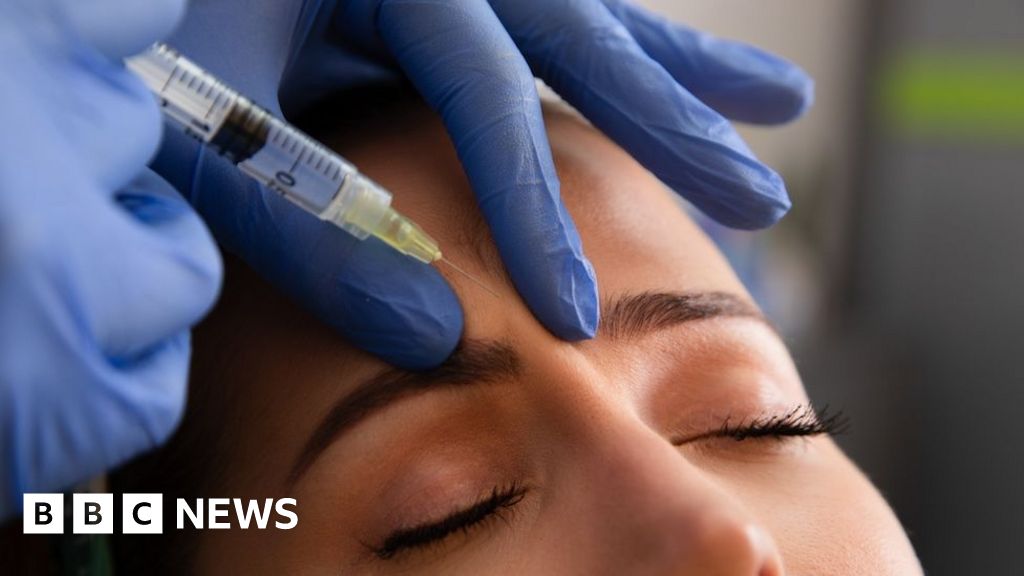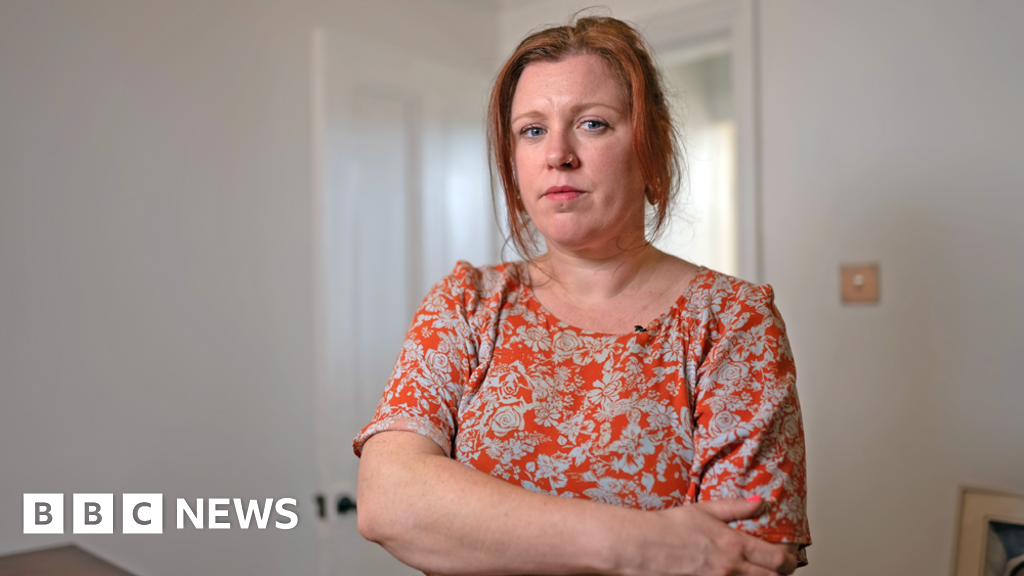ARTICLE AD BOX
By Nuala McCann
BBC News NI
 Image source, Liz McMahon
Image source, Liz McMahon
Seán, left, and Luke both have spinal muscular atrophy
The parents of two boys with spinal muscular atrophy (SMA) are backing a campaign for a simple but potentially life-changing blood test at birth.
SMA is a rare muscular-weakening condition - if it is not treated, 90% of children born with the most severe type do not live past two years old.
Liz McMahon and David Ryan have two sons with SMA, Luke, 4, and Seán, 2.
But life is dramatically different for their second child who was diagnosed and treated earlier.
"Before Luke was born, SMA was something we'd never heard of," said Liz from Mornington, County Meath, in the Republic of Ireland.
SMA is a life-limiting and potentially fatal condition that affects the motor neurons - the cells in the spinal cord - making muscles weaker and causing problems with movement, breathing and swallowing.
A challenging aspect of treating SMA is that the diagnosis is often only made once the child has serious clinical symptoms, such as movement problems, by which point many motor nerves will have been lost.
A blood spot test can detect the condition at birth, allowing quicker treatment.
SMA is not routinely detected before or at birth in the UK or Ireland, as it is in nearly all the US, in Germany, Poland, Belgium, Australia and in some parts of Japan.
The first UK pilot study of newborn screening study was launched at Oxford University in March.
It aims to make it possible to detect SMA within days of birth, before symptoms develop, so that any affected new born can receive diagnosis and treatment at the earliest possible opportunity.
'Stop it in its tracks'
"Luke slept all the time, he was a great baby, but then we started to notice things," Liz said.
Luke's muscle control was not good, his limbs were floppy and he did not move a lot, she added.
He was eight weeks old when he was diagnosed with SMA and started treatment at nine weeks, which was considered young.
He is now in a wheelchair and needs 24-hour nursing care.
Two years later, when Seán was born, he began treatment within 10 days. Compared to his brother, his life is relatively normal, said his mother.
"SMA is a progressive condition. If you get in before it starts taking effect, you are stopping it in its tracks," said Liz.
The difference between the two brothers is "black and white", she said.
"Seán started treatment at 10 days old. He is two and a half. He has not had any hospital stays, he is not on ventilation. He's walking around and climbing the furniture. He is practically unaffected on a day-to-day basis."
Image source, liz Ryan
Image caption,Liz McMahon and David Ryan with their sons, Luke and Seán
She is urging the Irish government to introduce the blood spot test at birth so that children with the rare condition can be treated quickly.
"For me, it's a no brainer," she said.
"Luke needs a nurse seven nights a week; he's in a wheelchair; he has physiotherapy, speech and language therapy; he needs lumber punctures and he is going to need this through his life.
"The screening should be available to every family."
SMA Ireland director Jonathan O'Grady has personal experience of the condition. He is urging the Irish government to introduced the blood spot test alongside the heel prick test given to babies at birth.
"It's a simple PCR test that costs five euros," he said.
"Out of 60,000 babies born in Ireland, six will have SMA.
"Other countries have already introduced the test. We are saying to the Irish government to stop dilly dallying and make a move so that we can get that medicine to the children as early as possible. Just let's hurry up."
Without the test, he said, new parents are taking their babies home and only discovering that they have SMA when it is already late.
Image source, Liz McMahon
Image caption,Luke, 4, and his younger brother, Seán, 2,
"For the McMahons, this will make no difference to their lives, their coming forward and speaking out is a selfless act," he said.
"They are doing it for the next family, they are acting for the greater good."
Meanwhile, SMA UK is also pressing for intervention to diagnose and treat the condition as soon as possible.
The charity is on the steering group of the UK SMA newborn screening alliance whose mission is to achieve the earliest possible introduction of newborn screening for SMA in the UK.
Every five days in the UK, a baby is born with SMA.
Researchers hope this will pave the way for national newborn screening that will lead to healthier lives for about 70 babies a year in the UK.
Related Internet Links
The BBC is not responsible for the content of external sites.

 2 years ago
108
2 years ago
108








 English (US) ·
English (US) ·